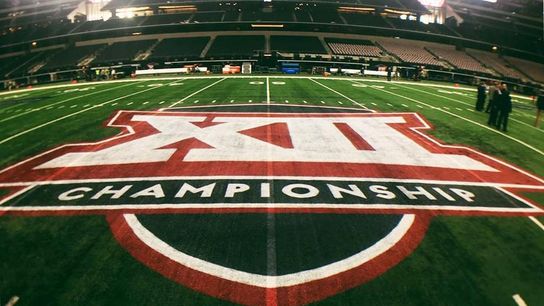While programs across the country are preparing for the possible (and hopeful) return of football in the fall, no one really knows what this fall will look like. As with so many things in today's landscape, there are many more questions than answers.
With that question looming large, local and national leaders are grappling with some huge questions and will need to have a detailed plan for not only what football is going to look like, but also what type of situations will cause the cancellation of games. That's just the first layer of the decisions that leaders are facing, as CBS Sports points out.
The Dennis Dodd article points out that five athletic directors from the Big 12 (via Baylor, Kansas State, Oklahoma, TCU, and West Virginia) are "in the early stages of setting thresholds for postponements, cancellations, and even forfeits," and their recommendations will go forward through coaches, players, as well as other athletic directors and commissioners as well.
Among the early considerations and thresholds that could lead to the cancellation of games are; losing 25% of scholarship players, a game-week standard of testing for teams, and how can teams expect to make up games that were missed?
When a program travels for an away game, they typically take up to 70 guys, so what is the fewest that coaches feel like they could enter a game with? One former coach shared with Dodd that 53 players (also the NFL roster maximum) would be the absolute fewest they would want to enter a game with.
One other interesting issue that the handful of Big 12 ADs are wrestling with is what would the criteria be for a team to be disqualified? Would it be a percentage of scholarship guys, or guys on the depth chart at a certain position? If your scholarship guys in your quarterback room tested positive the week of the game and a walk on was the team's only option to step in and play, is that really a viable option? That sounds like it is a major area they are considering input from players on.
Before any team takes the field this fall, there will need to be some clear answers to these, and so many more questions.
Dodd does a great job shining a light on many of those questions in his piece that many of us hadn't even considered, so head here to read it in its entirety.
